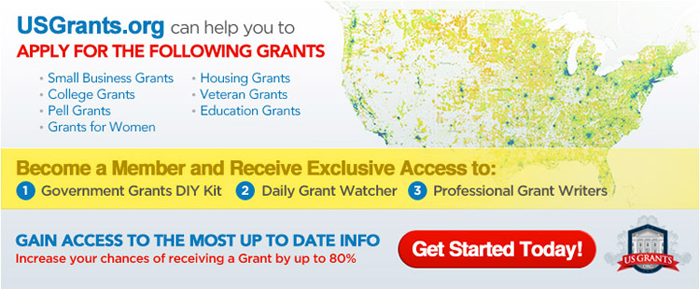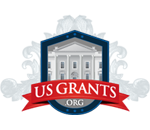Empower Life | Application Preview
Empower Life is applying for government grants to support a scalable, community-driven transitional housing initiative aimed at combating homelessness. The funding will be used across several key areas:
- Marketing & Outreach: Engaging social workers, shelters, and local nonprofits to raise awareness about their affordable housing model.
- Home Acquisition: Covering down payments, closing costs, and early mortgage payments.
- Furnishing: Outfitting homes with beds, furniture, and basic appliances.
- Essential Supplies: Providing toiletries, bedding, cleaning supplies, and pantry staples.
- Food Security: Creating in-home food pantries and partnerships with local food banks.
- Utilities & Internet: Covering basic services like electricity, water, and internet access.
- Insurance & Repairs: Funding homeowners insurance and setting aside a reserve for emergency repairs.
- Transportation: Supporting vehicle-related costs to assist residents with mobility.
- Compliance & Admin: Covering permits, legal needs, office supplies, and eventually staffing expenses for onsite management.
Their five-year plan focuses on launching and stabilizing their first home, validating their model, and then scaling to additional homes regionally. Funding sources will include housing vouchers, grants, and private pay. They aim to implement employment programs by year three and operate a network of supportive housing properties by year five, reinvesting profits for long-term community impact.
Empower Life differentiates itself from existing housing solutions by integrating housing with wraparound services like job support, financial education, and transportation—offering not just shelter, but tools for independence. This approach is more agile and scalable than traditional government programs, more socially driven than private housing operators, and broader in scope than nonprofit housing targeting specific populations.
They’re seeking early support to build a sustainable, replicable solution that provides stability today while laying the foundation for long-term personal and community transformation.
-
General Information
Business Registration Number: 331697088
Location: Manassas, VA, United States
Length of Operation: 1-5
Number of Employees: 1-10 Employees
Annual Gross Income: Less than $100k
Annual Gross Expense: Less than $100k
Open to Loans: YES
-
Funding Usage
Marketing and Outreach: Promote the affordable housing model to social workers, case managers, shelters, and local nonprofits. Acquiring the Home(s): Down payment, closing costs, and initial mortgage payments. Furnishing the Homes: Beds, mattresses, sofas, dining tables, chairs, basic appliances (if needed). Providing Essential Supplies: Toiletries (soap, shampoo, toothpaste, toilet paper, etc.). Bedding (blankets, sheets, pillows). Communal supplies (laundry detergent, dish detergent, cleaning supplies). Food Pantry and Food Partnerships: Stocking basic pantry items for communal use (rice, pasta, canned goods, etc.). Establishing partnerships with local food banks and food service providers. Utilities: Electricity, water, gas, trash service. Internet/Wi-Fi for residents. Homeowners insurance (required for owned properties). Emergency/Repair Fund: Reserve for unexpected repairs (plumbing issues, appliance replacement, damages). Transportation Costs: Fuel costs for transporting residents when needed. Rental or maintenance of a vehicle if providing regular transportation services. Additional Expenses You Might Also Want to Consider: Licensing/Permits (if required for operating a group home or transitional housing) — this varies by county. Legal/Compliance Costs (basic contracts, resident agreements, liability coverage). Administrative Costs (basic office supplies, printing, scheduling software). Staffing Costs (Future Stage): Hiring part-time house managers or case coordinators as you scale. Basic Furnishing per Home ~$5,000–$8,000 Toiletries, Supplies (start-up) ~$1,000–$1,500 Initial Food Pantry Stock ~$500–$800 Utilities (monthly) ~$400–$700 (depends on size and number of residents) Internet (monthly) ~$80–$120 Homeowners Insurance (annual) ~$1,200–$1,800 Emergency Repair Fund (recommended) ~$3,000–$5,000 set aside Transportation (gas, car rental) ~$400–$800 monthly depending on vehicle use
-
Business Plan
In the next five years, we plan to grow by first stabilizing our initial home and building a proven, scalable model. After validating the success of our first location, we will expand by acquiring additional homes in nearby communities, supported by strong partnerships with local agencies, nonprofits, and service providers. Funding will be diversified through housing vouchers, private pay, and grants. As our portfolio grows, we will hire a team to manage operations and maintain quality across locations. By year three, we aim to launch transitional employment programs to further empower our residents. By year five, we envision operating a network of supportive housing properties, expanding into multiple cities, and creating a sustainable social enterprise that reinvests profits into fighting homelessness and strengthening the communities we serve. Investors should invest in us because we are creating a sustainable, scalable solution to one of the most urgent social crises of our time: homelessness. Our model not only provides immediate housing, but also delivers long-term impact through wraparound services like employment support, financial education, and access to essential resources, giving people the tools to rebuild their lives. We have a clear, executable plan for growth, a deep understanding of the communities we serve, and a commitment to operational efficiency and social return on investment. By supporting us early, investors have the opportunity to be part of a transformative movement that will change lives, strengthen communities, and demonstrate that social impact and smart investing can go hand in hand.
-
Self Identified Competition
1. Nonprofit Housing Organizations (e.g., Pathway Homes, Inc.) Example: Pathway Homes (operating in Virginia and nearby areas) They provide permanent supportive housing to individuals with serious mental illnesses and co-occurring disorders who have experienced homelessness. Similarity: They focus on supportive housing + wraparound services. Difference: They mainly target individuals with diagnosed mental health conditions, and may have stricter entry criteria. 2. Government-Funded Transitional Housing Programs (e.g., Continuum of Care Providers) Example: Prince William County Continuum of Care (CoC) They coordinate government-funded housing programs, including transitional housing, rapid rehousing, and permanent supportive housing. Similarity: They address homelessness through structured housing programs. Difference: Government programs often have longer bureaucratic processes, less flexibility, and can’t always scale as quickly as private or nonprofit models. 3. Private Transitional Housing or Sober Living Homes Example: Various private operators offering group homes or transitional housing (for example, some re-entry homes for veterans or recovering addicts). Similarity: They provide affordable, shared housing with basic services and sometimes life skills training. Difference: Many private homes operate solely for profit, may lack the full wraparound service model you're building, and don’t necessarily focus on community empowerment or employment opportunities. What makes us different is our holistic, empowerment-driven approach to ending homelessness. While many competitors focus solely on providing shelter or basic services, we go several steps further — offering not just housing, but full wraparound support that includes employment assistance, financial literacy education, transportation, food security, and more. Our goal isn’t just to house people temporarily; it’s to equip them with the tools they need to rebuild independent, sustainable lives. We also prioritize speed, flexibility, and community-driven solutions, allowing us to scale faster than larger bureaucratic systems. Our model is rooted in compassion, accountability, and partnership, ensuring that every individual we serve has a real pathway to long-term success, not just survival. In short, we’re not just providing homes — we’re rebuilding lives and strengthening communities from the ground up.
-
Contact Applicant
Subscribe to our Administrator Dashboard to gain full access to this application. Learn More


